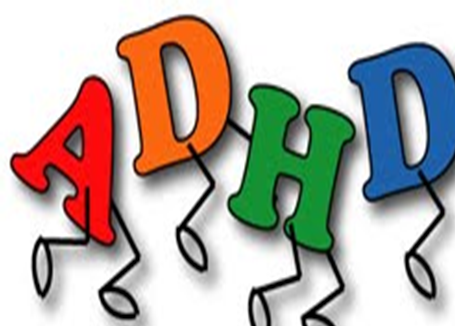
Has anyone told you your child has ADHD?
Does your child exhibit signs of inattention, lacks focus, disorganization or hyperactivity?
Read on to learn more about ADHD and helpful resources.
|
What is ADHD?
is
Attention Deficit Hyperactivity Disorder
|
What are common Signs and Symptoms?
- Difficulty with focus
- Easily distracted
- Frequently loses things (homework)
- Often forgetful
- Hyperactive (often "on the go")
- Frequently fidgets or squirms
- Often blurts out answers
- Difficulty waiting turn
- Frequently interrupts others
|
 |
Can't any doctor or health care provider diagnose my child for ADHD?
|
Diagnosis requires thorough evaluation from a health care professional specializing in psychiatry
It is extremely important children receive a thorough Assessment and Evaluation from a Health Care Provider who specializes in Psychiatry and Children's behavior to determine if they have ADHD or possibly another disorder.
|
Requires timely assessment
To ensure an accurate diagnosis of ADHD, the Psychiatric Health Care Provider performs a full Psychiatric Assessment and Evaluation of a child's medical and mental health history, signs and symptoms, behavior, academic ability, social and emotional functioning. A complete and thorough assessment often requires a significant amount of time gathering necessary information.
|
Requires consideration of other possible diagnosis
Some Physicians and Health Care Providers may treat ADHD however, it is the Health Care Provider specializing in Psychiatry who is often the only professional that is qualified and received advanced specialized training to diagnose and treat mental health disorders. The Psychiatric Health Care Professional provides the ability to not only make an accurate diagnosis, but also to rule out any other possible disorder or underlying issue the child may have (which is often referred to as differential diagnosis).
|
** The safety and effectiveness of treatment always begins with a correct diagnosis.
|
|
|
Diagnosis of the child with ADHD
|
 |
How can I tell if my child is just "an active child" as opposed to "hyperactive?"
|
|
Evaluating children's activity level can be challenging as “kids will be kids.” However you as a parent, can ask the following questions to help guide you in your decision to reach out for help:
A. How disruptive is my child's behavior?
B. Does their behavior interfere with daily family function?
C. Does the behavior interfere with school? Are teachers calling and/or emailing to report problematic behavior?
D. Do I/We avoid certain social situations, events for fear my child will embarrass us or become out of control?
If you answered YES to any of these questions- It is highly likely my child is more than just “An active child” and the situation warrants further evaluation.
|
|
How does one tell the difference between ADHD and other disorders?
|
 |
|
The Psychiatric Professional often utilize a combination of techniques and skill to make an appropriate and accurate diagnosis. Parent and teacher reports, child presentation, screening tools, assessment of developmental history, family history, personal and social environment, diet and health are all some of the common areas explored and evaluated.
One common “general rule” that can be a preliminary assessment tool is-
ADHD symptoms are often consistent in nature (symptoms are typically the same every day- lacks focus, easily distracted, forgetful, loses things, etc.)
Mood Disorder symptoms are often episodic in nature (symptoms come and go- can change from day to day- easy to get along with one day and very irritable or moody another day).
|
|
 |
How often is ADHD misdiagnosed?
|
|
Different statistics exist depending on location and credibility of source.
However, in nearly twelve (12) years of specializing in Pediatrics and Pediatric Disorders, misdiagnosis can occur up to fifty percent (50%) of the time
Examples:
1. Under-Diagnosed – ADHD diagnoses is missed/overlooked and therefore not treated
2. Dual- Diagnosis- A child receives a correct diagnosis of ADHD however, they also have another mental health disorder that is not adequately assessed or treated (example- Anxiety or Bipolar Disorder can mimic symptoms of ADHD). Mood Disorders are almost always treated before ADHD.
3. Mis-Diagnosed- A child is prescribed an ADHD medication when in fact they do not have ADHD but have a learning disability or possibly experienced some sort of trauma or abuse.
|
|
 |
What are some of the risks involved if my child is misdiagnosed?
|
|
A. Symptoms may become worse
B. My child may experience self-harm thoughts or behavior
C. If my child is given medication that is not appropriate for their disorder/condition, this may inhibit and or interfere with the effectiveness of the correct medication.
D. My child can be at risk of experiencing uncomfortable and/or adverse reaction to medication or treatment.
E. My child can suffer loss (loss of time, loss of school, failing grades, etc.)
|
|
 |
"I fear taking my child to a psychiatrist because they may want to prescribe medication—I don't want my child on medication—are there any other options?"
|
|
Many children require medication however, some children may respond effectively with other alternative methods - alteration in diet (decreasing/eliminating sugar and dyes), adding vitamins/supplements, strict behavior modification and implementation of routine, etc. Although most studies support medication is often “the treatment of choice” for ADHD, there can be other forms of treatment options explored, given the severity of symptoms.
|
How will the psychiatric health care provider know which treatment option is best for my child?
|
|
The Provider will take a thorough medical and mental health history of my child and then discuss possible treatment options.
|
|
 |
What is psychological testing and how can it be beneficial for my child?
|
|
Psychological Testing is a battery of tests to measure and observe one's behavior, beliefs, emotions and cognitive ability.
Psychological Testing can be very beneficial in diagnostic clarification and guide treatment planning. Sometimes a child may exhibit many different signs, symptoms and behaviors, which can be challenging to even the most highly skilled, qualified Psychiatric Professional. Therefore, testing can be a very valuable tool in providing more information for a definitive diagnosis.
|
|
 |
What kinds of things are evaluated and measured during psychological testing?
|
|
A. Discussion of present symptoms/concerns/struggles
B. Prenatal and Postnatal experience
C. Developmental History (delays, etc.)
D. Academic History
E. Social History
F. Family History of Mental Illness
G. Environmental Stressors (Family discord, major transitions, significant life events)
|
|
|
NOTE: There is NO “full proof” 100% method to determine an ADHD diagnosis; There are no blood tests currently available. However, the highly skilled and trained Psychiatric Health Care Provider possess specific Assessment/Diagnostic skills and tools to provide the most accurate diagnosis possible.
Psychiatry is more of an art not a science. Every child is unique with different DNA, different social and environmental stressors and family history, which is why every patient is evaluated and treated on an individual basis.
www.nimh.nih.gov.health/topics/attention-deficit-hyperactivity-disorder
PSYCHIATRIC, HEALTH & WELLNESS, LLC
JILL ADAMS MSN, ANP, PMHNP
810 Michael Drive, Suite L
Chesterton, IN 46304
www.jadamsandassociates.com
|
|
|
|
|